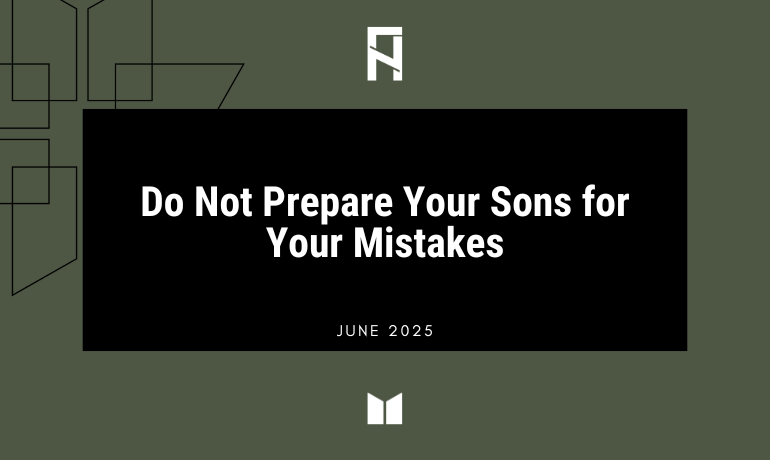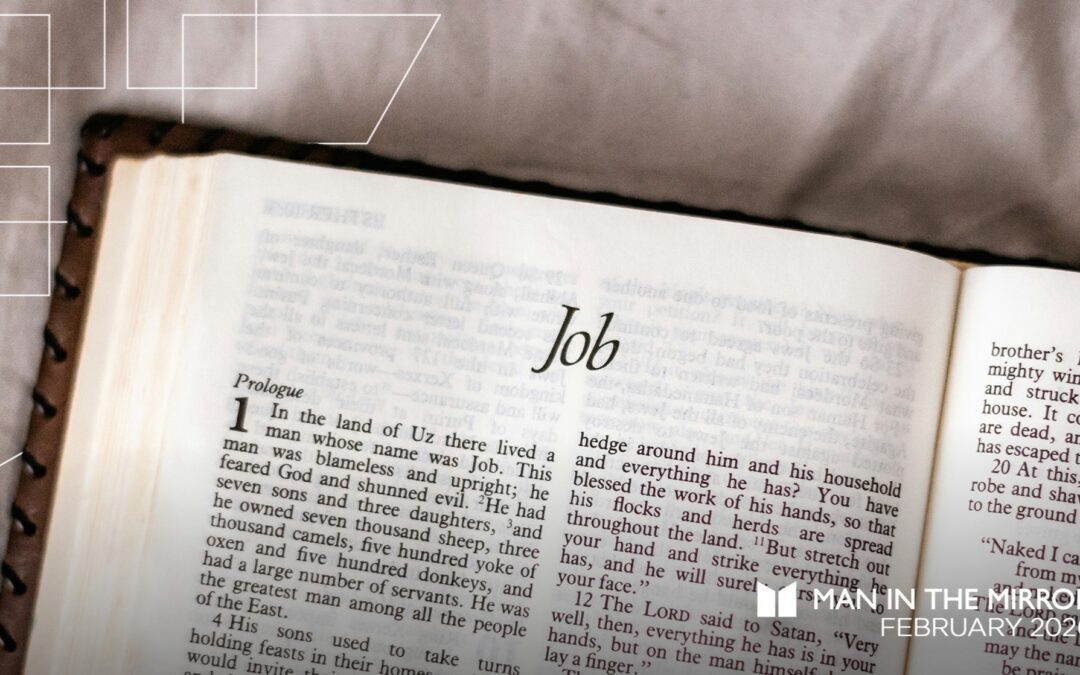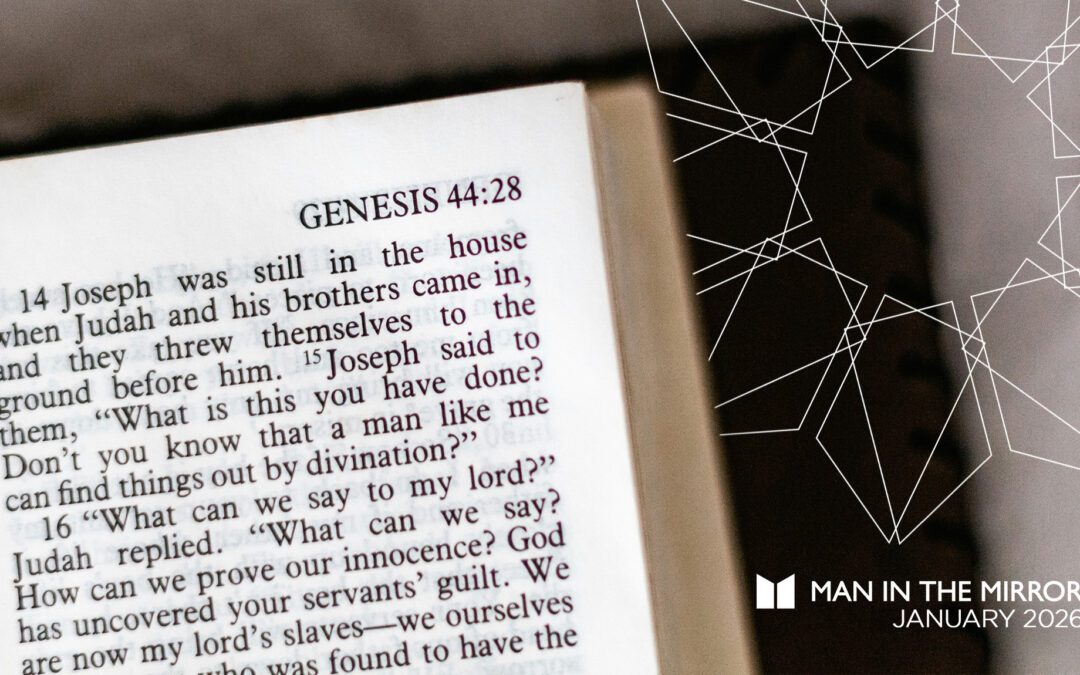By Ryan M. Reeves
When my son was three, he took a wild swing at life—quite literally—leaning forward in his chair at the kitchen table, defying gravity and mom’s frantic warnings, until he tipped forward and smashed his mouth on the granite kitchen bar. He looked like a toddler who had become a boxer. Bloody mouth and two new dead teeth while I, the bookish dad who’d spent my youth lost in novels and never so much as broken a bone, gaped in panic.
I imagined the future: stitches from kitchen mishaps, bruises from backyard tumbles, broken bones from some reckless leap I’d never have dared.
My childhood was tame—pages flipped, ideas wrestled, no emergency room tales to tell. I think I sprained my ankle once playing soccer. But as I knelt to scoop him up, wiping the mess and soothing his cries, it hit me: my son’s story isn’t mine. His scrapes, his stumbles, his bold, untamed spirit—they’re his alone. And if I’m to be the father he needs, I must pay attention not to my cautious, intellectual road, but to the wild, uncharted trail he’s carving, bumps and all.
Reflecting on Our Mistakes
At night, when the house has finally settled–a father often finds himself alone with his thoughts. The day’s demands linger: a work project still left to do, a bill that stretches the budget thin. But deeper still, in the recesses of the heart, a man reflects on his life—and sometimes his shortcomings in life.
It’s the weight of our mistakes, the stumbles and trips—moments of weakness, choices we’d claw back if time allowed. As men of faith, we turn to the cross, to the promise of grace, to the God who redeems our brokenness. Yet too often, we carry this burden into our fatherhood, not as a lesson in humility, but as a blueprint we unwittingly press upon our sons. We prepare them not for the lives God has woven for them, but for the shadows of our own regrets. And in doing so, we risk missing the divine, distinct beauty of the boys entrusted to our care.
We fathers spend too much time worried about our own mistakes. We replay them like a worn-out reel—endless loops of missteps that haunt us. Perhaps it was the job we walked away from too soon, chasing a dream that fizzled. Maybe it was the debt we piled high in our youth, a reckless bid for comfort or status. Or the temper that flared, leaving scars on relationships we still mourn. For some, it’s a season of spiritual drift—days, months, even years when faith felt distant, and we wandered from the path.
Scripture calls us to self-examination: “Let each one test his own work,” Paul writes in Galatians 6:4, urging us to face our flaws with honesty. And we do. But the trouble brews when this reflection turns inward too long, when we let our failures become the filter through which we see our sons. We look at them and see not their promise, but our past—a battlefield where our old enemies, our regrets, must be fought again. We arm them for our wars, not theirs, and in our earnest desire to protect, we lose sight of who they are.
Let our Sons Tell Us their Path
Your son is not you. This is a simple truth, yet it’s one we grapple to embrace. He’s not a mirror of your story, not a second chance to rewrite your script. He is a unique soul, fearfully and wonderfully made, as Psalm 139:14 declares—knit together by a Creator who knows every hair on his head (Luke 12:7), every hope in his heart, every stumble he’ll face. His temperament is his own—perhaps he’s quiet where you were brash, or bold where you were timid. His gifts might lean toward music or math, while yours tilted elsewhere.
His temptations, too, are distinct—shaped by a world you couldn’t have imagined in your youth.
I think of a friend, a man of deep faith, who grew up in a home torn by his father’s drinking. In his early years as a dad, he poured his energy into warning his boys—three of them, full of life—against the bottle. “Discipline,” he’d say, “don’t let it ruin you like it did my dad.” But his oldest, a sensitive boy named Caleb, didn’t crave escape in a glass. His struggle was quieter, a tide of anxiety that swelled in the face of school, friends, the future. One night, tears streaming down his young face, Caleb looked at his father and whispered, “Dad, I’m not you. I just need you to hear me.” It was a piercing moment, a crack in the armor of a father’s good intentions. He’d been so busy shielding his son from a ghost that he’d missed the storm brewing in the boy’s own heart.
Learning to Be Present with our Sons
This is where we must pause: our sons are unique, and their challenges will be too. Yes, we live in a fallen world, where sin crouches at the door (Genesis 4:7). But the shape of that brokenness bends differently for each of them.
Your son might not wrestle with your anger, your laziness, or your lust for approval. His fight might be with doubt, a whisper that God isn’t near. Or perhaps it’s the lure of a screen-saturated culture, where likes and followers measure worth. Maybe he’ll face a pressure you never knew—a society that mocks faith as backward, a world that brands manhood as either toxic or irrelevant, a pace of life that leaves little room for stillness.
To prepare him for your mistakes is to hand him a map to the wrong destination, to equip him with tools that don’t fit his hands.
Proverbs 22:6 offers a wiser charge: “Train up a child in the way he should go, and when he is old he will not depart from it.” Note the words—“the way he should go.” Not the road you took, not the potholes you fell into, but the path God has traced for him, tailored to his soul, his strengths, his struggles.
Where to Start
So what does a good father do? He shifts his focus. He lays down the burden of projection, the instinct to say, “He’ll fail like I did.” He turns instead to his son’s development, to the potential issues waiting on his unique horizon. This isn’t simple. It asks us to quiet our pride, to still the voice of self-reproach, to lean into prayer and discernment.
Start by being present. Sit with your son—not to lecture, but to listen. Ask him real questions: “What weighs on your mind today?” “What fires you up, makes you feel alive?” “Where do you sense God at work in you?” Watch him closely. See how he lights up when he talks about fixing cars or writing stories. Notice the way his jaw tightens when he’s been online too long, or how his laugh hides a flicker of nerves. These are windows into his world, hints of the battles he’ll fight, the callings he’ll chase.
A good dad doesn’t just protect; he cultivates. If your son is shy, help him build courage—not because you spoke too much, but because he’ll need a voice to stand for truth in a noisy world. If he’s reckless, guide him toward wisdom—not because you hesitated once, but because he’ll face choices in a culture that moves at breakneck speed. Ephesians 6:4 instructs us, “Fathers, do not provoke your children to anger, but bring them up in the discipline and instruction of the Lord.” That discipline and instruction must fit them, not the shadow of the man you wish you’d been.
We are stewards, not sculptors. We don’t mold our sons to dodge our failures or echo our lives. We guide them toward the God who made them, the God who redeems us both. Release the urge to prepare your son for your mistakes. See him as he is—a unique soul, flawed yet wondrous, with a path of his own. Pour your heart into his growth, his potential, his calling.
Your mistakes are yours; his journey is his. In God’s hands, both find grace.






